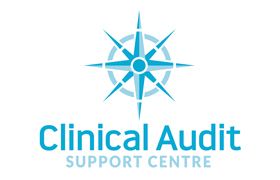News and presentations from today's Clinical Auditorium looking at how we can clearly get patients more involved in Clinical Audit and Quality Improvement.
NHS England Update
 Dawn Chamberlain
Dawn Chamberlain
Director Clinical Improvement & Co-Chair of Clinical Audit, Beneficial Changes Lead - COVID-19 Recovery
NHS England and NHS Improvement
• clinical audit for improvement – an overview of our thoughts to date on how to integrate clinical audit recommendations more closely into programme delivery and improvement on the ground. An opportunity to contribute to this NHSEI agenda
• patient & public involvement – the latest from NHSEI
• our co-production strategy – an introduction to the development of a Co-Production Strategy for the Improvement Directorate for NHSEI
Dawn gave a national update as Co-Chair of the new National Clinical Audit Forum, she is leading on taking these steps forward. She said Clinical Audit fits well with quality improvement in influencing policy and strategy. The aim is to take patient involvement one step further through co-production embedded in everything we do. The promoting continuous improvement strategy key areas of work include; Beneficial Changes Network - learning from the frontline; Right Care - commissioning and delivering care pathways based on best practice and reducing unwarranted variation; Clinical Audit. Initiatives include the NHS Futures site which provides valuable learning resources.
Dawn went on to talk about the National Clinical Audit Patient Outcome Programme (NCAPOP) which aims to improve patient outcomes by stimulating health improvement and policy development at national level. High quality data with strong clinical leadership is used to effect change in practice with a programme compromising 40 plus national clinical audits and outcome review programmes. Dawn said the benefit of audit needs to be for the people we serve but also for the staff so that we are doing things better and more productively. They are looking at more national Clinical Audit outside of the acute sector to ensure all sectors are included.
Dawn outlined a draft vision for Clinical Audit for Improvement to be achieved:
- A prioritisation of recommendations, with patient safety at the top of the hierarchy.
- Automated, real-time data for all clinical audits in the Model Health System, with benchmarking, dashboards, early warning systems and alerts available to all stakeholders.
- A focus on quality improvement to embed recommendations at the front-line.
- Clear communication and training, whereby everyone knows how and where to access clinical audit data and recommendations and understands what it means.
- A central repository to facilitate easy access to the latest recommendations and best practice.
- Supported by strong leadership across NHSEI Programmes as well as good engagement from the frontline.
- Local needs assessment that informs system priorities.
- Routine inclusion in education, on-going training & professional development, and job planning.
- Appropriately resourced system wide, with recommendations feeding into appropriate policy & strategy.
She asked for the audience of 167 clinical audit experts to vote for the top 3 areas they would like to see prioritised and send the information to england.improvementsupporthubpmo@nhs.net. This will feed in to their paper to the Executive Quality Board Clinical Audit sub group which will be submitted in September, and will be shared at Clinical Audit Leadership Summit in November.
On patient and public involvement, Dawn asked; how do we engage, what does that look like, and asked for feedback and thoughts to be emailed. Dawn said they are hoping to improve services through co-design. A programme for lived experience programme partners will ensure the work of the Improvement Directorate is co-produced.
A patient perspective and the NCAPOP
 Carol Munt
Carol Munt
Patient Partner & Advocate, Honorary Lecturer, NHS Leadership Academy Experience of Care Partner
Held in partnership with the Clinical Audit Support Centre:

